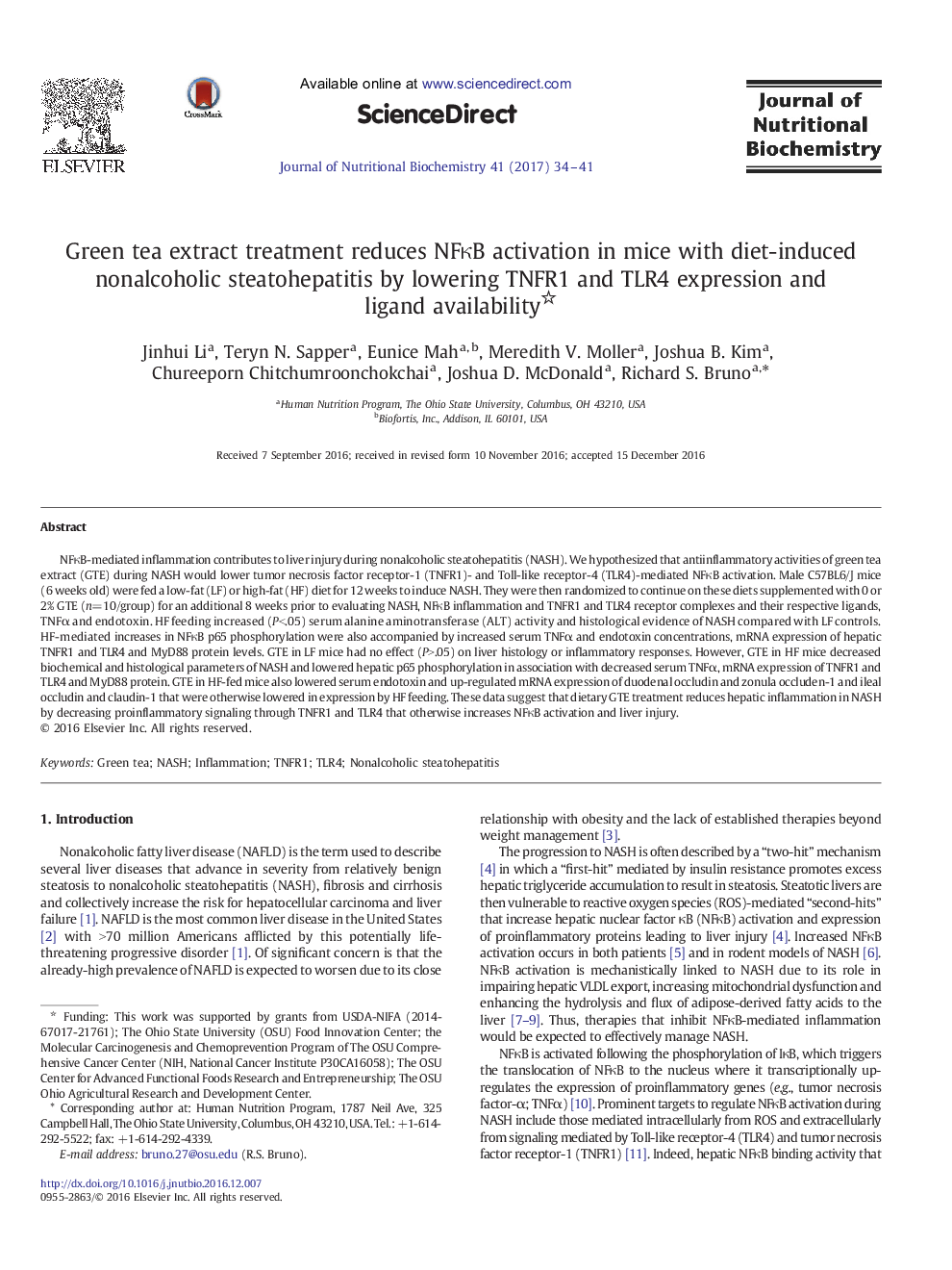| کد مقاله | کد نشریه | سال انتشار | مقاله انگلیسی | نسخه تمام متن |
|---|---|---|---|---|
| 5512943 | 1540627 | 2017 | 8 صفحه PDF | دانلود رایگان |

NFκB-mediated inflammation contributes to liver injury during nonalcoholic steatohepatitis (NASH). We hypothesized that antiinflammatory activities of green tea extract (GTE) during NASH would lower tumor necrosis factor receptor-1 (TNFR1)- and Toll-like receptor-4 (TLR4)-mediated NFκB activation. Male C57BL6/J mice (6 weeks old) were fed a low-fat (LF) or high-fat (HF) diet for 12 weeks to induce NASH. They were then randomized to continue on these diets supplemented with 0 or 2% GTE (n=10/group) for an additional 8 weeks prior to evaluating NASH, NFκB inflammation and TNFR1 and TLR4 receptor complexes and their respective ligands, TNFα and endotoxin. HF feeding increased (P<.05) serum alanine aminotransferase (ALT) activity and histological evidence of NASH compared with LF controls. HF-mediated increases in NFκB p65 phosphorylation were also accompanied by increased serum TNFα and endotoxin concentrations, mRNA expression of hepatic TNFR1 and TLR4 and MyD88 protein levels. GTE in LF mice had no effect (P>.05) on liver histology or inflammatory responses. However, GTE in HF mice decreased biochemical and histological parameters of NASH and lowered hepatic p65 phosphorylation in association with decreased serum TNFα, mRNA expression of TNFR1 and TLR4 and MyD88 protein. GTE in HF-fed mice also lowered serum endotoxin and up-regulated mRNA expression of duodenal occludin and zonula occluden-1 and ileal occludin and claudin-1 that were otherwise lowered in expression by HF feeding. These data suggest that dietary GTE treatment reduces hepatic inflammation in NASH by decreasing proinflammatory signaling through TNFR1 and TLR4 that otherwise increases NFκB activation and liver injury.
Journal: The Journal of Nutritional Biochemistry - Volume 41, March 2017, Pages 34-41